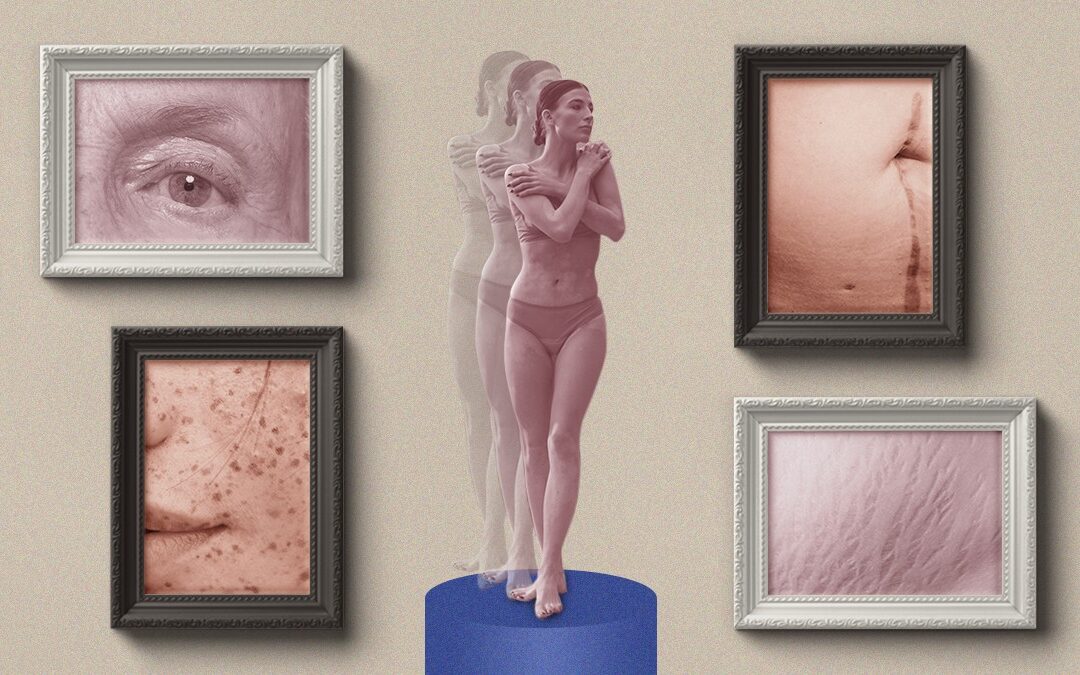Everybody has something they don’t like about their appearance; from a crooked smile to a uniquely shaped nose, or even the size of one’s ears–insecurities are like a beating heart: everybody has them. However, Body Dysmorphic Disorder (BDD) is a whole other story.
When the thoughts of one’s insecurities cause a significant amount of emotional distress, including self-consciousness and anxiety, and even interfere with their everyday life, this falls under Body Dysmorphic Disorder.
I was initially going to write this article based on research and scientific facts, but then I realised who better to talk about the REAL tea and what it’s really like being a woman than actual women themselves? So sit back and get cozy, as we read through different stories, thoughts, and words of encouragement from some of the strongest and most beautiful women I know.
“Being an athlete for many years back then, I was generally fit until I got diagnosed with severe clinical depression and general anxiety. As a result of my medications, as well as stress eating, I started getting bigger even quicker. For quite a while, I distanced myself from people because I was afraid to be seen and judged. Eventually, I learned to be more conscious about my behaviors and patterns to help myself get better. I took each thing I did one day at a time, and learned to only put to heart the things that mattered and to take things easy. Now, little inconveniences and mean comments about me no longer matter. Each “Uy! Ang taba mo na!” gets easily brushed off because I developed a new found love for myself. As a result, I feel much happier and I’ve built a confidence I never thought I had in me. One advice I can share is the importance of self love–for everyone out there to take things one day at a time; to not be too harsh on yourself. Once you get comfortable in your own skin, you’re unstoppable.” –Patti Olpindo, 21
“In high school, I started to have insecurities on my sudden weight gain cause I had just quit my dance training. I went through moments of just looking at myself in the mirror and wanting to change a lot of things, until I came across a post one day about how the body does everything it can to keep you alive; in a nutshell, your body ensures you’re in good condition, and all we tend to do is hate our bodies. This really stuck with me and ever since then, my view on my body changed. It’s okay to change things about your body, but don’t do it out of hate. [Your body] is kind of like a plant; if you send a plant bad energy, you’d be less likely to take care of it, but if you send it good energy, naturally, you’d nurture it and it would be in the best shape it could be in.” –Amanda Lazo, 23
“It’s tough and it’s one of those things you have to deal with and probably never get over. Some things I remember that continue to help me: 1) I am more than my body; Remind yourself that you’re a good friend, and that you’re resilient and strong; and, 2) My body does so much more for me than just to “look good.” I work on the form of my exercises and have fun with my workouts as opposed to thinking “If I do this, I’ll look the way I want to.” One important tip to remember is to stop staring at yourself in the mirror obsessively in a way that’s not healthy anymore.” –Nina Alcantara, 23
“It’s not easy when you see all the girls that they portray on social media to be beautiful look nothing like you. Growing up fat is cute when you’re 5, but not when you’re 14 and are told that you’ve gained weight after forcing yourself to limit your food intake in school to avoid weight gain. It’s cliche but it starts with you accepting and loving yourself little by little. Know that it’s okay to have those days when you don’t feel pretty, but when you do have those days when you feel confident, enjoy them as much as you can. You’re beautiful no matter what society says.” –Denise Milarion, 22
“The everyday pressures of a woman include being objectified, harassed, and being held to unrealistic standards and expectations. It’s hard being a woman with Body Dysmorphia in a society that constantly judges and dictates what we should and shouldn’t look like. Personally, I don’t pay attention to my specific weight anymore, and I detach myself from people who make me feel bad about my body. Go on a diet and workout, but don’t go crazy about the calories you intake because this can lead to obsessive behavior.” –Patricia Araza, 22
“I’m insecure about so many things physically. My main takeaway from that is that it’s okay to have days when you’re not feeling your best, but you have to remind yourself that there’s more to you than the things you’re insecure about. People tend to hyper focus on their “bad parts” so much that they forget about all the good parts of them. While it’s great to get compliments and feel validated by others, at the end of the day, you won’t be satisfied until you actively choose to be okay with yourself.” –Jamie Go, 21
For our sisters who are suffering from BDD, we are all sorry that you have to go through this, but remember that you are not alone–even if it feels like you are. What you’re feeling is valid, however, always remember that BDD gives you only a distorted view of yourself. Taking your very first step towards treatment is a difficult part of the process, but remember that there are resources out there that you can look into.
The sad reality is that not everybody is as kind as they should be. Women are pitted against each other based on their looks and other superficial factors when we all know that we are so much more than that. Just as everyone has mentioned, everything starts with self-love. It’s also important to remember, however, that self-love isn’t always as glamorous as it’s cut out to be; self-love can be ugly too. Self-love can be reminding yourself that healing isn’t linear and that bad days aren’t avoidable; you just have to get through them and know that you’ll come out stronger every time that you do.



